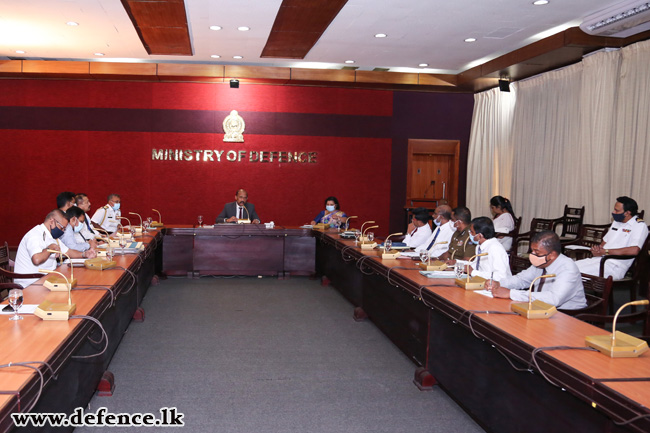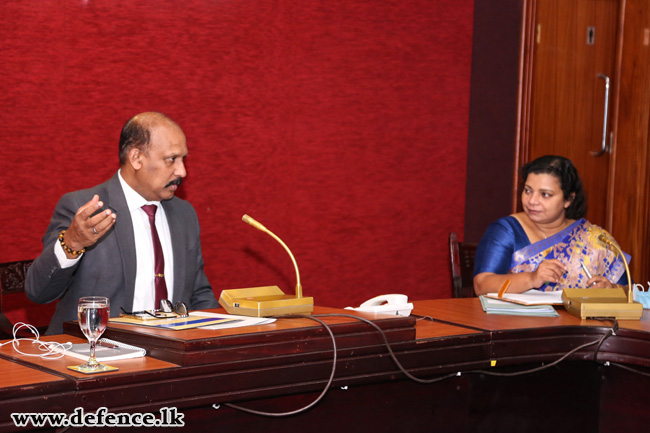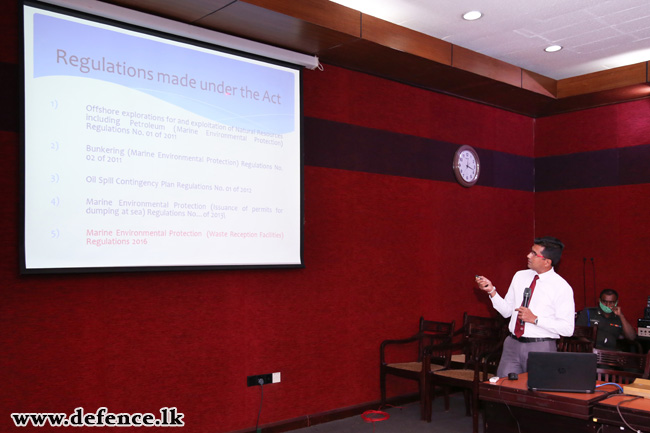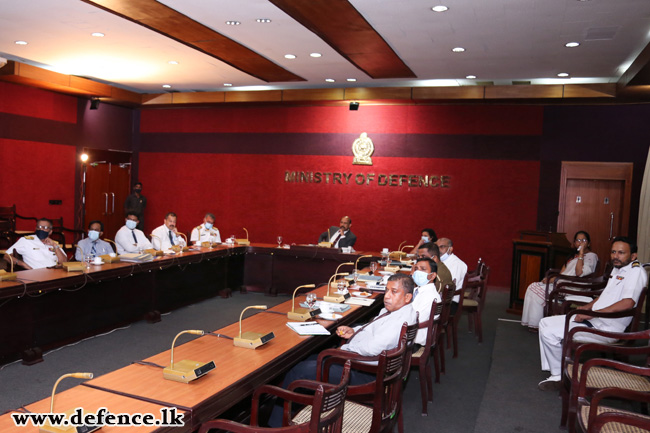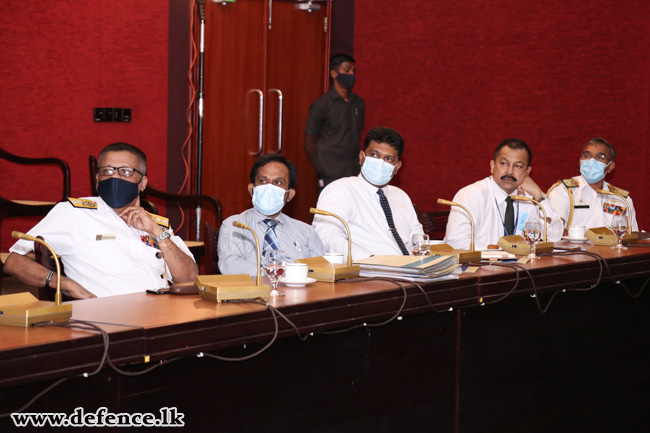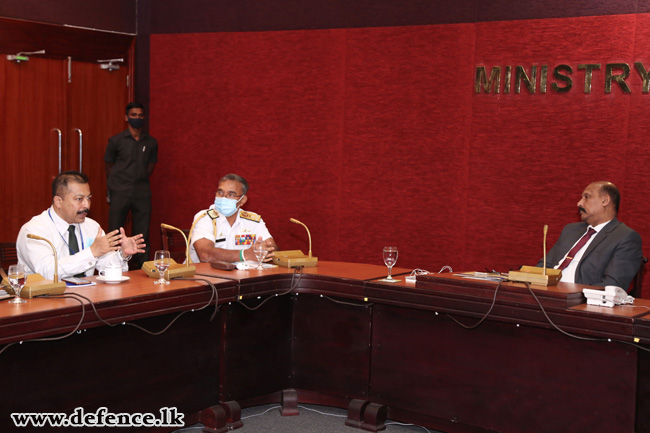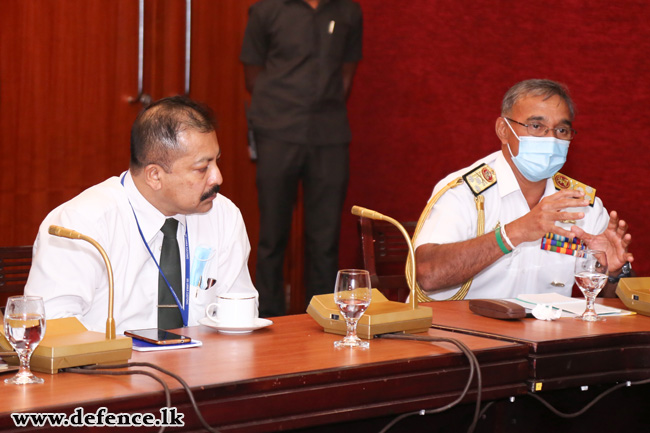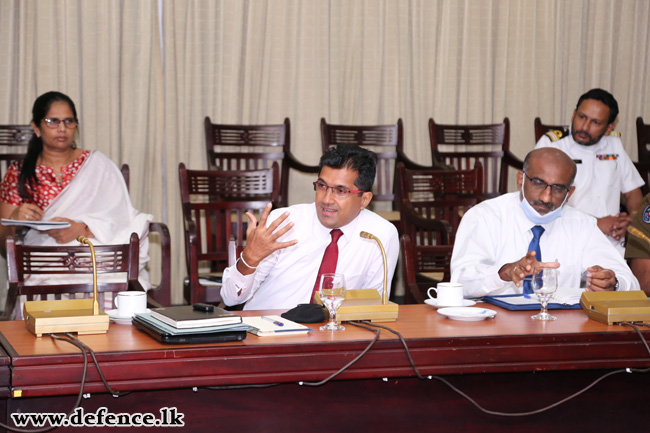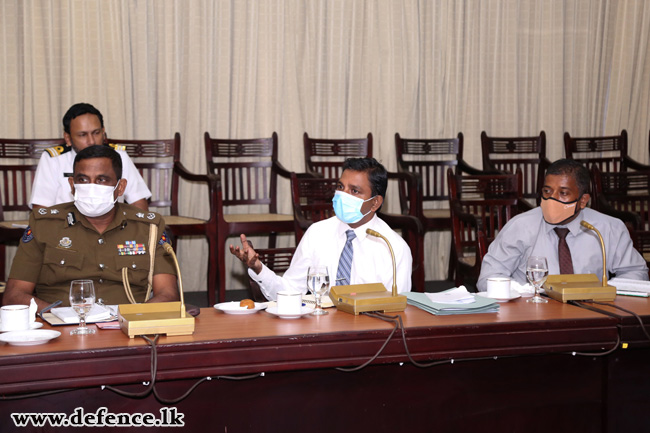MEPA to monitor ship-generated waste facilities from tomorrow
July 06, 2020- Average annual collection of SGW oil in Sri Lanka accounts for 26,904 cubic meters
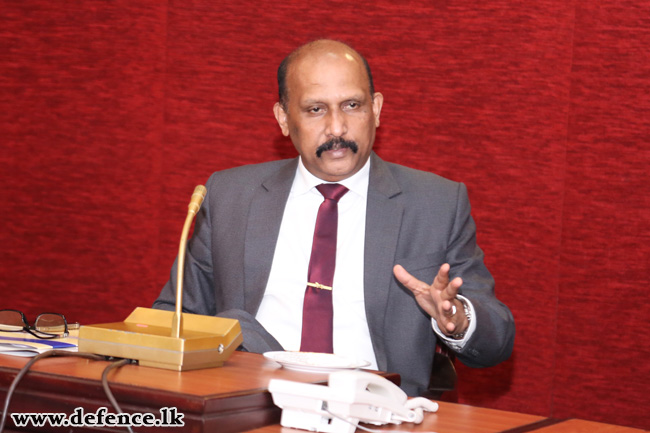
Marine Environment Protection Authority (MEPA) together with Sri Lanka Navy, Sri Lanka coast Guards, Central Environmental Authority, Sri Lanka Customs, Sri Lanka Ports Authority and the Police is to inspect Ship Generated Waste (SGW) reception facilities in the country from tomorrow.
The MEPA has launched this special program under the directives of President Gotabaya Rajapaksa and with the support of Defence Secretary Maj. Gen. (Retd) Kamal Gunaratne.
According to MEPA there are over 28 licensed SGW reception service providers in the country and average annual collection of SGW oil in the country is 26,904 cubic meters while 7404 cubic meters of garbage are collected by the listed companies.
The Defence Secretary said although the MEPA doesn’t come under Defence Ministry’s purview, the President had given a direction to get the Defence Ministry involved to draw an effective mechanism to make this sector a more revenue making venture.
He said President Rajapaksa had given directives to restructure the SGW Management process to provide adequate and effective reception facilities for any harmful substance or any other pollutant without polluting marine and other environmental zones in the country.
“The Government has come to know that there are some shortcomings in the existing system and I was instructed by President Rajapaksa to monitor the process. In most countries, the ships coming to their ports are paying them to remove waste oil but in Sri Lanka we pay the ships to get their ship wastes into the country,” he said at a special meeting held at the Ministry, today.
According to Maj. Gen. Gunaratne, the Defence Ministry will facilitate, monitor and support the stakeholders to implement a mechanism to transform SGW reception services to revenue generation ventures.
However, stressing the importance of getting all stakeholders involved in regulating the process, he had instructed the MEPA to streamline the process through Cabinet approval while having combined efforts between all stakeholders to draw an effective restructuring process.
Maj. Gen. Gunaratne had directed MEPA Chairperson Dharshani Lahandapura to coordinate and nominate a team consisting of members representing all the stakeholder institutions to inspect the process of all the listed companies receiving SGW within or outside any port in Sri Lanka.
Lahandapura, stressing the need of establishing a proper coordination mechanism for the whole process with a focal point for all agencies, said rapid and frequent site and process inspections to monitor waste storage and disposal sites were essential to make the sector more effective.
General Manager MEPA and Senior Lecturer of the Ruhuna University Dr. Terney Pradeep Kumara, conducting a presentation, highlighted potential environmental hazards and areas of concern related to SGW during the session.
Attributing de-watering due to oily water dumping into waterways, oily water spilling along the roads, oily residuals in open burning and oil spillages as some of the environmental hazards due to adhoc handling of SGW, Dr. Kumara revealed bribery, undercuts, corruption, political and underworld influences as hindrances for ineffective handling of SGW services.
He also revealed some irregularities like mixing SGW oil with kerosene and selling in the local market.
Navy Commander Vice Admiral Piyal De Silva, Director General Customs Maj. Gen. (Retd) G. Ravipriya Director General Sri Lanka Coast Guard Rear Admiral (Retd) Samantha Wimalathunga, Director General Central Environment Authority Hemantha Jayasinghe, Deputy Inspector General of Environmental Police Anil Priyantha, Harbour Master Sri Lanka Ports Authority Nirmal Silva, Officers of the MEPA and Sri Lanka Customs were also present at the meeting.
